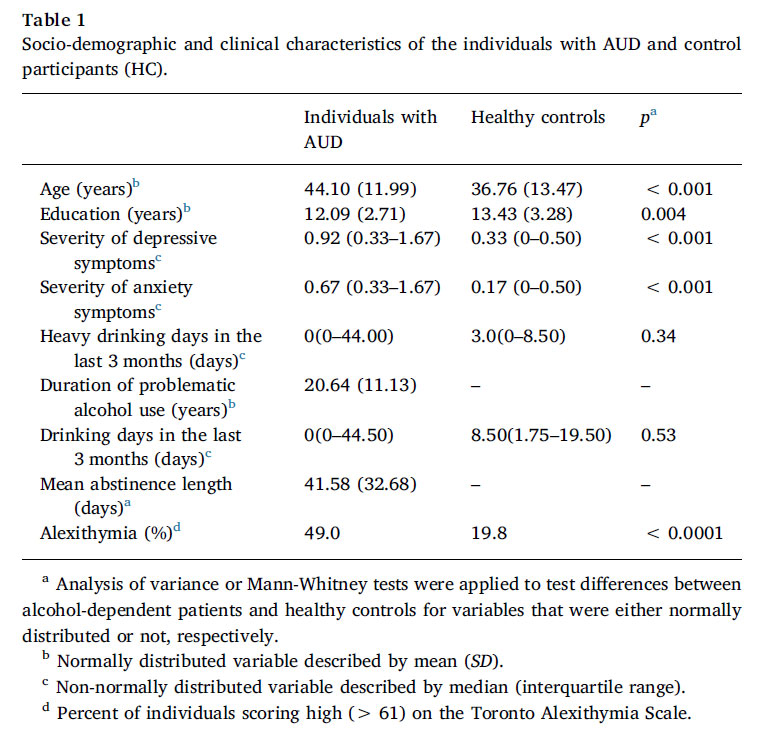Interpersonal and intrapersonal emotional processes in individuals treated for
Maciej Kopera, Elisa M. Trucco, Andrzej Jakubczyk, Hubert Suszek, Aneta Michalska, Aleksandra Majewska, Natalia Szejko, Agata Łoczewska, Aleksandra Krasowska, Anna Klimkiewicz, Kirk J. Brower, Robert A. Zucker, Marcin Wojnar
Introduction:
Prior work largely confirms the resence of various emotional processing deficits among individuals with an alcohol use disorder (AUD); however, their specificity and relevance still warrant investigation. The aim of the current study was to compare selected aspects of emotional processing (i.e., mental state recognition, alexithymia, and emotional intelligence) between individuals treated for an AUD and healthy individuals.
Methods:
The AUD sample consisted of 92 abstinent men with AUD who were participating in an 8-week inpatient abstinence-based treatment program in Warsaw, Poland. The healthy control (HC) group consisted of 86 men recruited from the Medical University of Warsaw and the Nowowiejski Hospital administrative staff. Baseline information about demographics, psychopathological symptoms, and severity of alcohol problems was obtained. Mental states recognition was assessed using the Reading the Mind in the Eyes Test (RMET). Alexithymia was measured with the Toronto Alexithymia Scale (TAS-20). The Schutte Self-Report Emotional Intelligence Test (SSEIT) was used to measure emotional intelligence (EI).
Results and conclusions:
After accounting for potentially confounding variables (demographics, severity of depression, anxiety symptoms) in MANCOVA models, patients with AUD presented deficits in identification and description of their own emotional states, as well as lower emotion regulation skills when compared to HCs. No between-group differences were observed in self-reported recognition of other people’s emotions, social skills, and a behavioral measure of mental states recognition.
Specific rather than general emotion-processing deficits in participants with AUD were identified, suggesting problems with processing of intrapersonal emotional signals.
